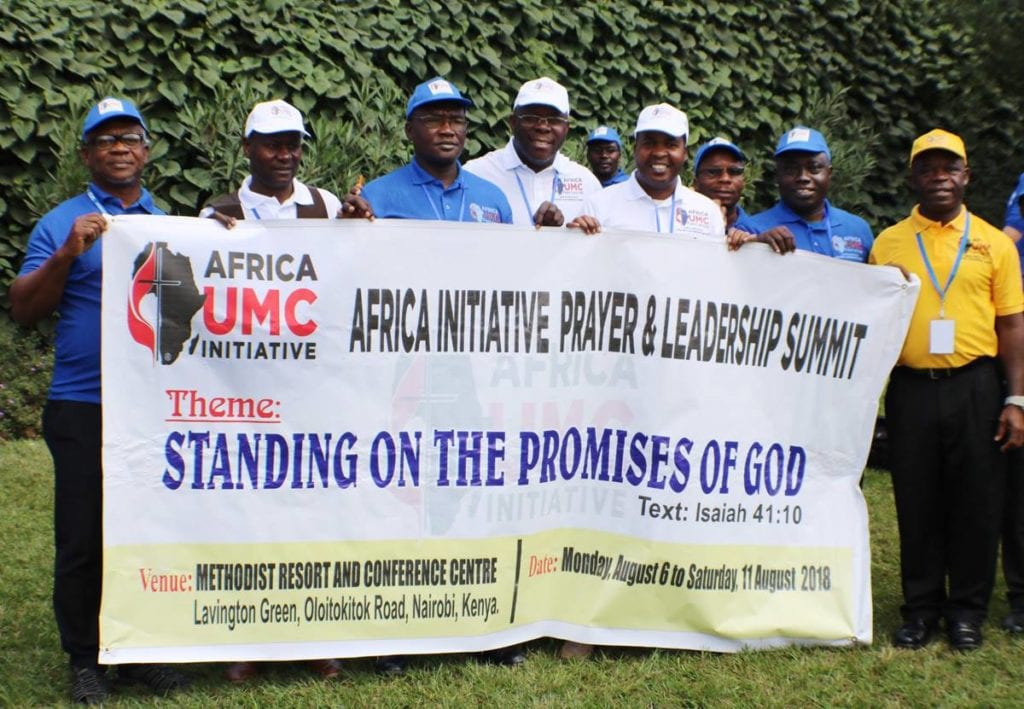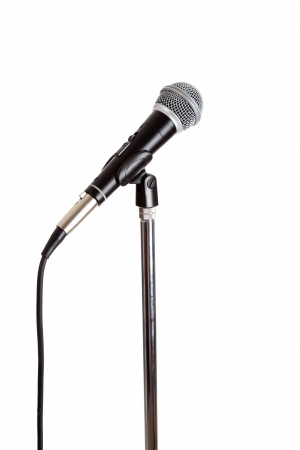The Rev. Forbes Matonga is a Pastor in the Zimbabwe West Annual Conference of The United Methodist Church and the Secretary of the denomination’s Africa Central Conference. He recently shared with us his paper, “A Church in Schism: An African Perspective on the Theological Impasse in The United Methodist Church.” Part 1, posted earlier, gave an African perspective on the nature and aftermath of the special 2019 General Conference. While American United Methodists often talk about African United Methodists, Part 2, posted below, offers a true insider’s outline of the views of African United Methodists, with far more details and nuances than are often included in American discussions about Africans. Part 3 will conclude with an African perspective on the future of United Methodism and on the choices facing African United Methodists.
Rev. Matonga’s reflections draw on his extensive leadership experience in our denomination, including serving as the secretary of his annual conference (2000-2012), a member of the UMC Connectional Table (2004-2012), and a board member of the UMC’s General Board of Higher Education and Ministry. He has served as a delegate to every session of the Africa Central Conference since 2000, and was elected as a delegate to the 2004, 2016, 2019, and 2021 General Conferences.
UM Voices is a forum for different voices within the United Methodist Church on pressing issues of denominational concern. UM Voices contributors represent only themselves and not IRD/UMAction.
In recent years, African delegates were forced into their corner where they had to come up with their own strategy for survival. They realized that they needed unity amongst themselves. They realized that Americans organize themselves in what are known as caucus group for lobbying and strategizing. African Delegates then came up with their own caucus which they named THE AFRICA INITIATIVE. This name was carefully chosen to reflect the independence of the Voice of Africa on this matter. While in their corner Africans realized that on this particular issue of homosexuality they do have other groups that hold the same position on homosexuality as theirs hence those became naturally preferred allies. These are the American renewal groups such as Good News, the Institute on Religion and Democracy, the Confessing Movement, and the Wesleyan Covenant Association. This is a well-considered choice of partners. Africans are not manipulated or coerced into this alliance and being in alliance on this matter does not mean Africa shall agree with these groups on every other issue that emerges. Africans desire to be respected for the decisions they so choose to take. This particular decision to reject homosexuality is based on Africans’ careful reading of the Bible and their own interpretation of biblical passages that clearly condemn the practice of homosexuality.
AFRICAN UNITED METHODIST IS BOTH TRADITIONAL AND EVANGELICAL
United Methodists in Africa are proud to be associated with John Wesley, that preacher who had the deep desire to “Spread Scriptural Holiness across the land.” Yes, that John Wesley who saw the world as his parish. Generally Africans are EVANGELICAL. By EVANGELICAL we mean four things:
1. Upholding the Bible as the Word of God whose authority is unquestionable.
2. That being born again is prerequisite for all Christians.
3. That the Good News must be preached to all.
4. That Jesus is the Way, the Truth, and the Life.
Africans were excited to discover that among the increasingly liberalised United Methodists in the United States of America, there are some who still share with them this deep desire for evangelism and acknowledge the evangelical roots of Methodism. That there are some who still burn to share the Good News across the land. As we state these points we are not being naïve to the fact that we do have a number of some Africans who no longer subscribe to the evangelical ideals either because of the seminaries they went through or because of their associations with liberal American United Methodists through partnerships or agencies of the Church. We do acknowledge that since the 1960s our seminaries were fast becoming liberal in their theology because of a deliberate curriculum development by the Western liberal theologians who were secured to teach in our seminaries. The ecumenical movement in particular was one factor that was used as a vehicle to carry liberal theology. Africa was no exception.
The 1960s through the 1990s saw great inroads for such theologies as Africa was fighting Colonialism. Liberation Theology, Black Theology, Feminist, and African Theologies were fashionable and attractive to many Africans who were in seminaries during these years. No wonder some African bishops of today resonate with liberal theology. But every African who went through seminary in these years knows for sure that whatever they learned in seminaries was not for the pulpit. It was just for academic development and most useful for those who desired to take appointment beyond the conference boundaries.
If truth be told, the historic Protestant churches in Africa are not growing at the same speed as Pentecostal/Apostolic Sects in any given African country. This is mainly because of the liberalised theology African pastors drank in seminaries mainly taught either by White Western theologians or Western-trained African academics. Through this process many African seminarians swallowed the same Western-baked theologies that have drained Western churches empty in Europe and the United States of America. Most Seminaries drained the zeal for Evangelism out of their students. Evangelism as a subject was replaced with homiletics. Missiology replaced with World Religions. Ecumenical studies replaced individual denominational polity. What saved the African church’s vitality was its spirituality that was preserved within the congregations.
This historical information is important for us to appreciate the relief most Africans experience to discover that though most Western Christians in Mainline Protestant churches embraced liberalism, there are renewal groups in The United Methodist Church in the United States of America who hold on to the traditional teachings of the Church. Over the years most African annual conferences were bombarded with liberalised theology as most of them had “partnerships” with liberal American conferences. This discovery of American renewal groups restrengthened their theological preference, which is conservative/ traditionalist. The point we are making here is that the association between American United Methodist renewal groups and African Delegates via the Africa Initiative is natural. They share same theological convictions. They desire the same things; keeping the teaching of the Church intact on marriage, human sexuality and ordination standards. Africans do not need not to be bought by anyone to express their convictions on such matters. Africans are willing accomplices, if their association with conservatives is a crime.
While the presenting issue that has led the UMC to this unfortunate point is homosexuality, we hope this paper has shown that the issues are wider and deeper than just human sexuality. We have deep theological disharmony.
We for example have divergent views on the issue of abortion better known in the USA as the pro-choice vs. pro-life debate. Africans are clear on that subject. Abortion is murder. The Bible is very clear on when a life is considered life during the childbearing process. The prophet Jeremiah was known by God before he was even in his mother’s womb. He was not viewed as part of the pregnant mother. (Jer. 1:4-5). In the New Testament, Mary the mother of our Lord Jesus visited Elizabeth, the mother of John the Baptist, who was in his mother’s womb greeted Jesus who was still at a very early stage of development in his Mother’s womb (Lk 1:41-44). John and Jesus were already INDIVIDUALS though still in their mothers’ wombs.
Such a biblically rooted position is the principled position of African United Methodists which is also the position held by American traditionalists.






Comment by Pirate Preacher on February 16, 2021 at 9:42 am
The irony of Pastor Matonga’s comments and the beauty of God’s graces is that for years American churches sent missionaries to Africa and now Africa needs to send missionaries to America.
As the orthodox-traditional-whatever denomination emerges from the split, it will need pastors and staff committed to the teachings of Jesus. What better place to look for help than from our brothers and sisters in Africa?
Currently America’s roots in racism is the scourge of our culture. What better way to address the issue than to turn for help to those whose ancestors were taken and forced to help build America. When one asks for help they often come in humility. The new orthodox-traditional-whatever denomination has an opportunity to apologize for past sins, seek forgiveness, and submit to the authority of Christ under the leadership of our African clergy who:
1. Uphold the Bible as the Word of God whose authority is unquestionable.
2. Recognize that being born again is prerequisite for all Christians.
3. Are committed to preaching the Good News to all.
4. And acknowledge that Jesus is the Way, the Truth, and the Life.
Reconciliation, rejuvenation, and the revelation of Christ preached with authority by those who have witnessed His power to change lives. May it be so and soon.
Comment by Jeff on February 16, 2021 at 11:29 am
AMEN and AMEN, Pirate Preacher!
Rev. Matonga, thank you for your insights and leadership and your bold voice of truth. I still remember when you held up your Bible at the Houston WCA gathering and said (forgive me, I paraphrase, not quote) “…for us this book is SACRED. We lay this book on sick people and pray over them and they are HEALED…”
AMEN and AMEN! Thank you Father GOD for Forbes Matonga, in Jesus Name may the work of his hands to Your Glory receive Your favor and blessing.
Comment by Gary Bebop on February 16, 2021 at 2:04 pm
African voices should be heard in the United States, and their convictions should prevail in the current conversation if WCA is to be launched as a global Methodist church. The obfuscations of the American church are an abomination.